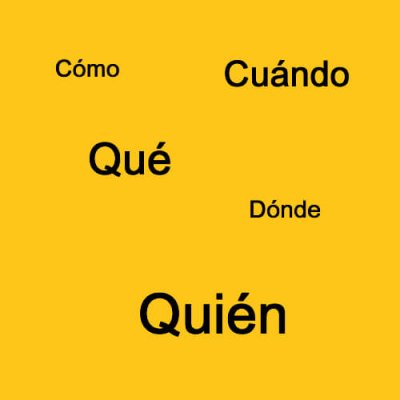 It is the political form of organization of social life by which the authorities that govern it are strictly limited by a supreme legal framework that they accept and to which they submit in its forms and contents. Therefore, every decision of its governing bodies must be subject to procedures regulated by law and guided by absolute respect for fundamental rights.
It is the political form of organization of social life by which the authorities that govern it are strictly limited by a supreme legal framework that they accept and to which they submit in its forms and contents. Therefore, every decision of its governing bodies must be subject to procedures regulated by law and guided by absolute respect for fundamental rights.
The concept at hand in this review is used prominently politically. A state, as we know, is that territory or superior political unit and that as such is autonomous and sovereign. Countries, states, can be governed in an autocratic way, which is that system that is characterized because a single person governs who is the one who has total power, there is no division of powers as for example there is in a democratic system. In democracy, for example, there is a government exercised by a person, who embodies the executive and makes decisions in this regard, however, his power will be limited to it and there will be two other powers, legislative and judicial, that will act as the controller of the first. .
Generally, democracies are characterized by having and respecting what is known as the rule of law, without doubt, it is the ideal state of any nation because all the powers that make up the state are under the law, that is, subject to the authority of the laws in force, the mother law, such as the national Constitution of a country, and the rest of the normative body.
General Principles of the Rule of Law
The rule of law is based on four basic pillars
1) Respect for the legal system by all levels of the State.
2) The existence of a guarantee in respect of the fundamental rights and freedoms of every individual. When these rights and freedoms are included in the Law, the Rule of Law automatically guarantees them.
3) The action of the political body of the State is limited by the Law. Both the components of the Government of the nation, as well as the officials that make up the public administration will be subject to the legal system.
4) The separation of the three fundamental powers of the State: legislative, executive and judicial.
Ethical considerations of the rule of law
To properly define the rule of law, it is necessary to start from the idea that every society must contain some type of legal system that regulates the political life of the community.
In this way, the idea behind the concept of the rule of law is that political power must have a series of limitations imposed by legislation. Which is not only an organizational postulate, but also has ethical ramifications.
That is why the concept of the rule of law fully confronts those societies, which even having some type of legal system, said system does not represent any limit to the exercise of absolute power by the political stratum.
Fair and equal treatment
We must also say that in that country in which there is a citizen who is not treated before the law the same as the rest, that country cannot be considered as a rule of law even though its form of government is democratic, because precisely the rule of law It implies that the law is complied with and in no law that boasts of such a citizen will be despised and will not be given a fair and equal treatment like the rest of his compatriots.
The authorities that govern, meet, accept and respect current law
 A State of Law will be one in which the authorities that govern it, meet, accept and respect the current law, that is, in a state of law, all actions on the part of society and the state are subject to and supported by norms. legal, which will contribute to the development and growth of the state in question within a framework of absolute peace and harmony. This also means that at the behest of the rule of law, the power of the state is limited by the right.
A State of Law will be one in which the authorities that govern it, meet, accept and respect the current law, that is, in a state of law, all actions on the part of society and the state are subject to and supported by norms. legal, which will contribute to the development and growth of the state in question within a framework of absolute peace and harmony. This also means that at the behest of the rule of law, the power of the state is limited by the right.
State and law, fundamental components
Then, it is made up of two elements, the state, which represents the political organization and the law, manifested in that set of norms that will govern behavior within a society.
Reaction against monarchical absolutism
The birth of the concept of the rule of law emerged as a necessity against the proposal of the absolutist state, in which the king is the highest authority, who is above any citizen, even, there is no power that can overshadow him.
The ideas that make up the Rule of Law are direct daughters of 18th century German liberalism, with the works of thinkers such as Humboldt and Kant being among their original sources.
It is they who argue that state power cannot be absolute, but must respect the freedom of individuals.
But if there is a key date in the history of the rule of law, that is undoubtedly the year 1789 when the French Revolution took place. From that moment on, ideas began to develop according to which all citizens are equal and a completely new perspective was opened in future legal relationships.
 On the contrary, what the rule of law proposes is the novelty that Power arises from the people, from the citizens and that it is these ultimately who will have the power to elect the representatives who govern them, without impositions.
On the contrary, what the rule of law proposes is the novelty that Power arises from the people, from the citizens and that it is these ultimately who will have the power to elect the representatives who govern them, without impositions.
Division of powers and courts, guarantors of the rule of law
A direct consequence of the advent of the Rule of Law was the division of powers of a Nation into Executive Power, Legislative Power and Judicial Power. Before, more precisely in the absolutist states, it would be in the figure of the king in which these three met.
Following the division of powers, the Courts and Parliament will appear, which are the bodies, the institutions that will deal with and understand the matter of justice and representation of citizens through the resolution of their different demands.
Another fundamental element within a rule of law turns out to be democracy, since it is in the form of government of democracy in which the people have the possibility to choose who will be their representatives through their votes.
Although, in truth, it is worth noting that democracy does not ensure the permanence of a rule of law at all, that is, a government can assume under conditions and through democratic means and then ignore and abolish them, establishing a government totally authoritarian, such is the case of Germany ruled decades ago by the bloody Adolf Hitler and it has also been the current story of many other nations whose representatives, directly elected by the people, assumed in a rule of law, and immediately afterwards despised it for rule with total autocracy.
Photos: iStock - IdealPhoto30 / Seltiva









